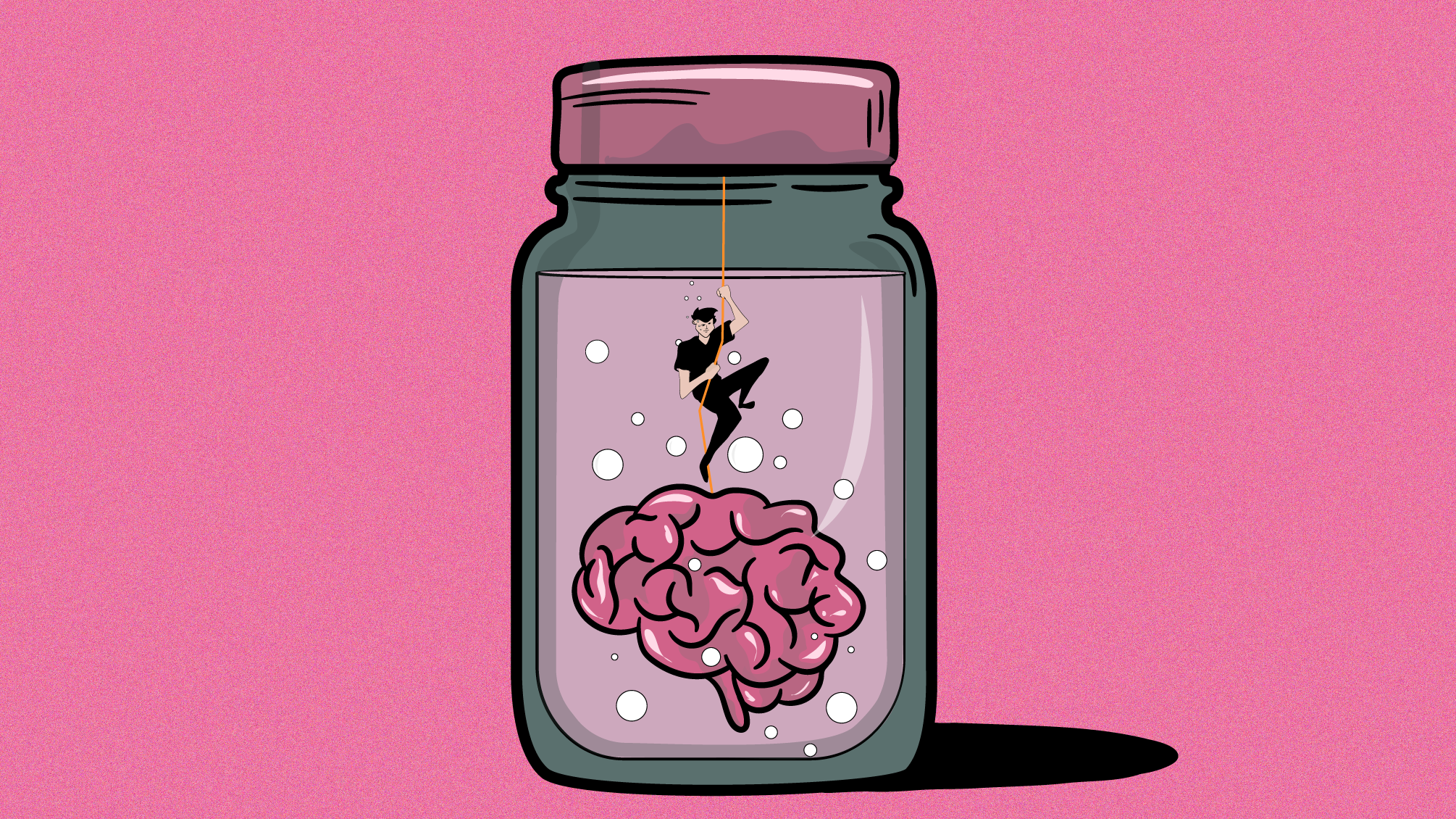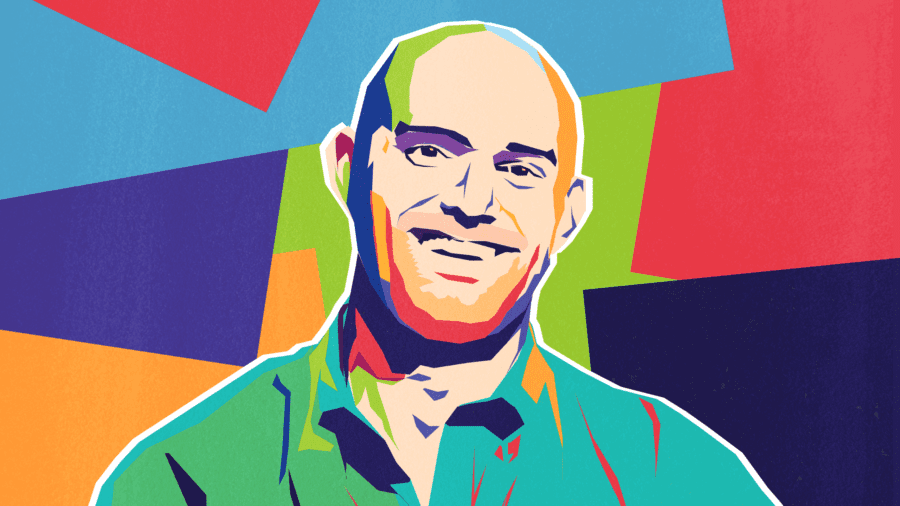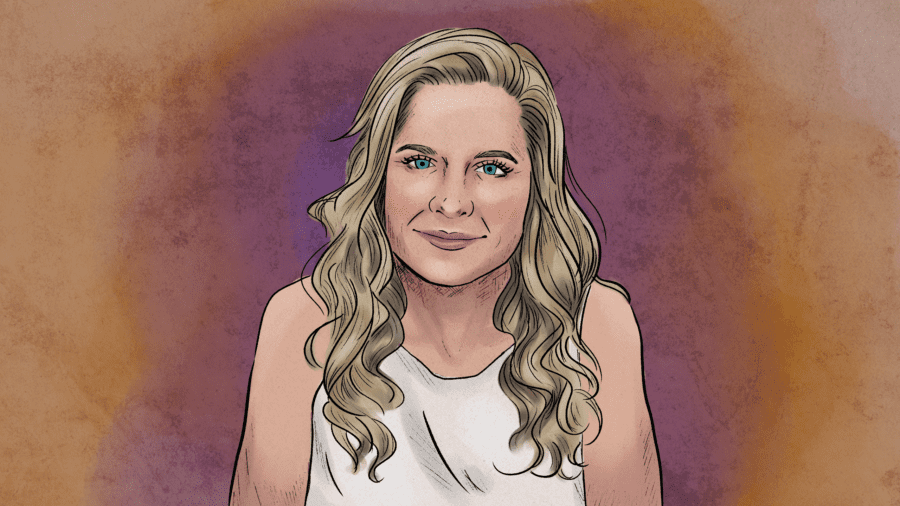
It’s important to look back as you look ahead – this way, you can better understand how you reached where you are and more confidently get to where you want to go next.
When you know how you work and learn best, you can then lean on those tried and tested methods to achieve your goals. However, in only doing what you believe you are best at or gifted with, you’re thinking with more of a fixed mindset. Focusing on your strengths is great, but it can lead you to miss out on areas where you can grow.
As you move through the different chapters of life and expand yourself mentally and holistically, having a growth mindset will allow you to look back at how hard work made your achievements possible, rather than looking at your accomplishments as a result of your inherent gifts.
Effort is a key to success, and a growth mindset allows you to view new challenges as hurdles that can be leaped through work. Understanding the differences between a fixed and a growth mindset will help you identify areas where you might achieve better results with an improved approach to your goals.
What Is A Fixed Mindset?
The adage that you can’t teach an old dog new tricks is rarely said by anyone old enough for an AARP card. Often, it’s merely a statement people say to avoid their fear of the unknown and the challenge of learning something new.
The characteristics of a fixed mindset include seeing any failure as a permanent failure. It’s a mindset that doesn’t believe setbacks are only temporary. The fixed mindset isn’t stubborn or lazy in the traditional way. Rather, people with a fixed mindset believe in innate gifts. They consider things like intelligence or athletic skill to be traits provided to them at birth, but those talents can’t be expanded or deepened.
For example, no one actually believes something like athletic skill is entirely present at birth, but someone with a fixed mindset would tell you that your capacity for those things is predetermined.

The same goes for intelligence. People with a fixed mindset believe their intellectual capacity is innate. And innate skills and traits can’t be improved upon because you can’t outperform your natural state.
Essentially, the definition of a person with a fixed mindset is simply someone who doesn’t believe their talents or intelligence can grow through effort, so they accept the things they are naturally good at and avoid growing in other areas.
The Dangers of a Fixed Mindset
Once you’re locked into a fixed mindset, you start labeling others by their perceived innate traits to manage your jealousy when they achieve something you didn’t. You also stop taking on challenges and pushing through setbacks because your mindset sees them as beyond your innate skills.
You start to give up more easily on projects that aren’t going the way you want them to as if you didn’t fall off your bike a few times before you learned to ride it.
Perhaps the most personally dangerous aspect of a fixed mindset is your response to feedback. When you have a fixed mindset, it’s easy to see feedback as a personal attack which leads to dismissing constructive criticism.
A Fixed Mindset in Action
A fixed mindset goes beyond your personal life and decisions; it also informs how you conduct your professional life. And a professional who can’t learn from feedback or support teammates isn’t going too far.
It’s not that a fixed mindset is the wrong way to think and be, but it can be incredibly limiting to professional growth. Fixed mindset people are often more interested in showcasing their talents rather than in expanding growth into areas in which they are unfamiliar.
This mindset frequently leads to the avoidance of ideas that may be failures. It becomes a dangerous build-up of insecurities that hinder your potential for greatness.
Imagine a CEO with a fixed mindset, and then imagine the company they build using that mindset. They are more likely to hire like-minded people or, at least, those presenting similar traits.
When companies are made up of this type of staff, they tend to foster only one kind of work environment: a deceitful one. And employees in this environment tend to value personal career growth over anything else.
This leads to a corporate environment where staff routinely claim ownership of ideas that aren’t theirs or take time to point out other team members’ mistakes to look better in comparison. It’s an unsustainable environment from a staff perspective, and with a CEO who can’t get behind new ideas that could lead to new revenue streams, it puts a ceiling on the business’s growth.
What Is a Growth Mindset?
The frequent misconception about the growth mindset is that it breaks down to essentially supporting new ideas. That is an excellent attitude to have and certainly not one that should be dismissed or buried, but it isn’t the best way to define a growth mindset.
At its most simple, those with a growth mindset believe intelligence and talent can be improved upon. But that simplicity also leads to confusion. People think that having an open mind and being flexible to change means they have — and have always had — a growth mindset.
This is incorrect. The idea of a pure growth mindset such as that doesn’t exist. We’re all somewhere on the spectrum between a fixed and growth mindset. The balance just shifts between the two as we gain more and more experience, and it’s our responsibility to understand where we are fixed and how to adjust.
Even a successful multi-sport athlete like Shaun White had to take inventory of his mindset to understand where he was fixed and how he could adapt it to achieve his greater goals.
While those with a growth mindset are certainly purveyors and public supporters of effort — it’s not about rewarding effort for its own sake. Unproductive effort isn’t to be praised. Instead, focus on rewarding effort that leads to progress or learning.
Having a growth mindset is more than operating with an open mind – it’s believing that effort and practice lead to mastery and that failures are setbacks, not final results.
Join In 200 Million+ On The Journey to Greatness
The Benefits of a Growth Mindset
Your mindset is under your control. You can change it any day or night, but why bother taking the time to develop a growth mindset?
Because the three core tenets of a growth mindset are also the primary benefits, and they will branch out into many aspects of your life. When you’re too locked into a fixed mindset, you’re inadvertently being controlled by your insecurities because you fear failure and the success of others.
It was that realization that he was losing out on his potential by succumbing to insecurities that made actor, singer, and dancer Jordan Fisher finally do the work to adopt a new mindset and start reaping these benefits.
Benefit #1: Motivation
You are more likely to take on challenges when operating with a growth mindset because you see them as opportunities. You are willing to risk possible failure to pursue those challenges.
A growth mindset is an inquiring mind motivated not by where each leap lands but by where you can jump to next. Every leap of faith isn’t going to land in the perfect spot, but you can learn from the missteps and learn how to pivot if you keep an open mind.
Benefit #2: Effort
A growth mindset empowers your approach to effort, and it embraces the effort you invest into growing. Instead of viewing effort as the work put into completing the task, those with a growth mindset see effort as the stepping stone to mastery.
When you embrace effort, you embrace work and the feeling of your sleeves rolled up. The benefit of this mindset is the understanding that effort is a process. You can’t try hard today and bail tomorrow.
It doesn’t only take 10,000 hours to become a master of something. It takes effort every day. Counting the repetitions isn’t the most valuable part of the process. The repetitions themselves are what will drive your successes to new levels.
Benefit #3: Inspiration
There’s always one person at the office birthday party who only cares about getting their slice of cake. They don’t care to celebrate someone’s trip around the sun, it’s all “give me my corner slice, and I’ll eat at my desk.”
When you have a growth mindset, you aren’t only worried about your slice of cake — you’re inspired by others when you have a growth mindset, not jealous of them.
With a growth mindset, you’ll be constantly inspired if the people around you are achieving greatness rather than wasting hours and missing opportunities pondering the hows and whys of other people’s successes.
With a growth mindset, you’re free from obsessing over others’ achievements because you’re responding to their accomplishments with increased effort on your part.
How To Develop a Growth Mindset
It takes active participation from you to change your mindset. You won’t get there by simply reading a book or ingesting other people’s methods. To develop a growth mindset, you can follow these steps to set yourself up for success.
1. Take an Inventory Of Where You’re at Now
Think about how you respond to challenges and what inspires you. Use what you learn to best determine what you feel your mindset currently is, and take time to think about what it would take to change those positions.
It’s harder to develop a growth mindset when you don’t know your current standing.
2. Change How You Respond to Failure
Stop seeing it as an actual failure and begin parsing out learning opportunities so you can see the benefit of failing. Don’t spend time in a negative mindset drilling into that failure. Instead, acknowledge the loss out of respect for the effort put into it and then find a pathway to being energized by it.
The sooner you’re able to get back to work after a tough loss, the more effective you’ll be going forward.
3. Look for Opportunities to Celebrate Others’ Victories
There’s a warm feeling that comes with celebrating others’ victories. When you turn that celebrating into being inspired by it, there is a ripple effect on your mindset. You start seeing the value of effort, and the energy from group support is infectious. Soon you’ll want to be the one bringing joy to the group.
It’s a whole new reason to believe failures are also steps toward eventual success.
4. Pay Attention to How You Speak And Act
Notice when you dismiss things as something you could never do or when you make comments about how so-and-so is naturally gifted. There’s an old sports adage that says how you practice is how you play, and it holds true for everyday life. If you carry an attitude of can’t do this or that, it will limit your possibilities. However, when you carry an attitude of support and approach challenges with positive energy, it will also infect others.
Changing how you speak will encourage you to notice and change how you think.
5. Reward Actions, Not Traits
Effort deserves recognition. It’s as simple as that. When someone excels at an assigned task, reward the work it took to deliver that result. Regardless of achievement, when you set personal goals, rewarding the effort itself that you put into reaching it should be honored. When you acknowledge an action like effort, it supports a positive approach to challenges and learning new things.
Celebrate the effort you and those around you put into successful endeavors.
Adopt a Growth Mindset Now to Achieve More Later
The growth mindset is your path to greatness. It will teach you to learn from mistakes along the way and inspire you to push into challenging avenues.
It’s important to know that just being a ray of positivity and talking about how you support fresh ideas won’t ingrain the growth mindset in you — you need to have action that backs up your words.
Embrace the growth mindset and walk the walk. Don’t just clap for the effort put into a failed idea – make sure you are learning and that progress is happening. Once you start experiencing this new day feeling a growth mindset can provide to you, suddenly everything feels within reach.
Greatness Authors
Greatness Authors is a collection of writers, thinkers, curiosity experts, and students of the world who are committed to bringing you the most up-to-date, impactful, and inspiring information surrounding Greatness topics.

Redefining Poetry: How Instagram Sensation Rupi Kaur Showed That Poetry Is for Everyone

The 7 Best Vitamins to Naturally Promote Better, Uninterrupted Sleep According to Shawn Stevenson

The Science of Forming Healthy Habits & Letting Go of Bad Ones, According to Author James Clear

9 Signs You Have Imposter Syndrome at Work and How to Overcome Performance Insecurity

Olympian Yusra Mardini’s Incredible Story of Resilience, Rescue, and Refugee Rights











